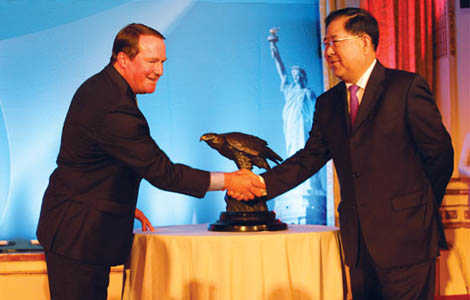'Dr Tea' takes on US market
Updated: 2014-08-07 04:40
By MAY ZHOU in Houston (China Daily USA)
|
|||||||||
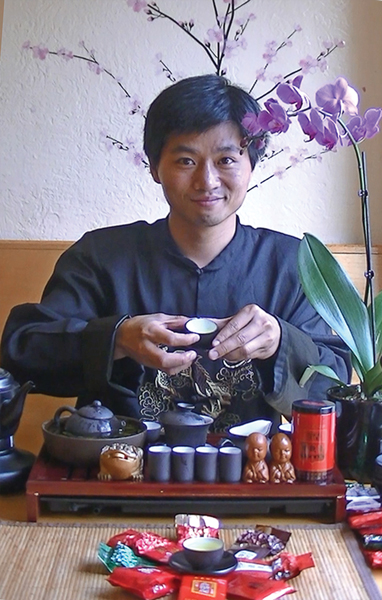 |
|
Michael Zhang brews a cup tea. A tray holds the traditional pots, cups and accessories for serving tea Chinese style. PROVIDED TO CHINA DAILY |
Michael Zhang has five degrees in mathematics, chemistry, materials physics and nanotechnology. His PhD is in nanomedicinal engineering with a focus on cancer treatment.
Nowadays, Zhang is not working in science of any kind. When he's out and about, people call him Dr Tea.
Tea has become such a passion for Zhang that he quit his job at a Houston bioanalyasis company last year and started his own tea company called My Love Tea.
Back in graduate school, Zhang had done research on herbal and natural drug treatment for cancer involving polyphenol antioxidants, which are present in white, black and green teas. He published research papers and his studies have been cited by professors and other researchers more than 100 times.
"There has been research showing that green tea is beneficial in cancer prevention and helping inhibit the growth of cancer cells," Zhang said. "My own studies indicated that black tea and dark tea have even better anti-fungi, anti-bacterial and anti-cancer properties."
Prior to founding My Love Tea, Zhang went to Harvard University in search of a post-doctorate position and visited its Yenching Institute. There he saw tea laid out for faculty, students and guests. "Most of it was familiar teas from my hometown - Heath Goddess (Tie Guan Yin), Tea Pope (Da Hong Pao) and Bohea Tea (Wu Yi Cha)," said Zhang.
Zhang learned that many people there, once they tried it, enjoyed these kinds of "good tea" very much. Yet, with such a variety of teas on the market, Chinese tea was not well recognized in the US.
"China has contributed greatly to the tea culture of the world," Zhang said. "To some degree, tea is China's cultural calling card. Did you know that the tea dumped in the Boston Tea Party was Bohea tea from my hometown? The tea drunk by Thomas Jefferson every day was our Bohea tea as well. And yet there is no well-known brand of Chinese tea in the US. Someone needs to create a popular Chinese brand."
Zhang regards that someone to be himself.
Zhang grew up in Fujian province where the tea culture and oolong originated in China. "There are many famous teas from my hometown and I basically grew up drinking tea," Zhang said.
Coupled with his scientific knowledge and his love of Chinese classical literature and calligraphy, Zhang believes his Fujian background makes him the ideal candidate to bring the Chinese tea culture in its full form to the US.
After careful consideration, Zhang quit his job last year and devoted himself full time to his tea business. Zhang frequented community events to introduce his tea to people of all ethnicities. At one event he ran into Texas Lieutenant Governor David Dewhurst, who enjoyed Zhang's tea and offered praise.
Zhang has also hosted tea events such as Super Valentine, Lantern Tea Poetry Festival and Tasting One Hundred Teas Festival, where tea, poetry and calligraphy often go hand-in-hand. In less than a year, Zhang and his tea became such a fixture in local communities that people started to call him Dr Tea.
Zhang personally selects his teas from China and has created some of his own blends, such as Governor Fruit Tea and Calendar Tea.
According to Zhang, brewing the ideal cup of tea depends on the quality of the leaves and the temperature of the water. "Different teas require different water temperatures to bring out the best flavor," Zhang said.
For example, white tea is naturally dried and the best water temperature is 80 degrees. Green tea, lightly fermented during processing, is best brewed at 85 degrees, while semi-fermented oolong should be brewed at 90-95 degrees, depending on the variety. Black tea and dark tea such as Pu'er, which is fully fermented for long periods of time, perform best at the boiling point of 100 degrees.
Currently, Zhang is working on opening a full-scale tea house near the campus of Harvard University. "I want to turn the tea house into a platform for tea, culture, art and science," he said. "I want it to be a place where people can come to enjoy not only a cup of tea, but also to look at artwork, share creative ideas and discuss art, because in the Chinese culture, tea is closely related to art."
mayzhou@chinadailyusa.com
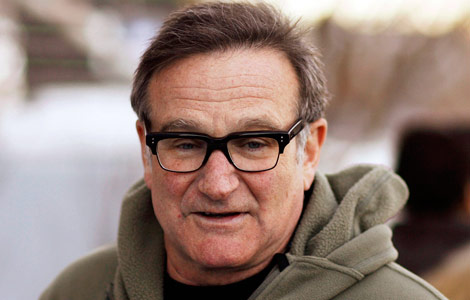
 Sheriff official: Robin Williams killed himself
Sheriff official: Robin Williams killed himself
 Chinese warships visit US navy base after joint drill
Chinese warships visit US navy base after joint drill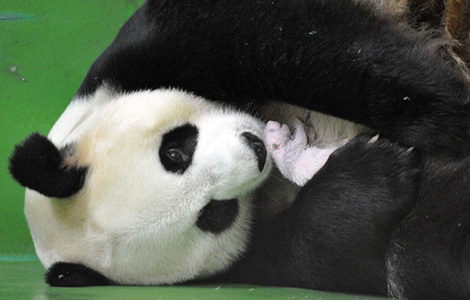
 Unique panda triplets take a bow
Unique panda triplets take a bow
 Drought no trade threat, yet
Drought no trade threat, yet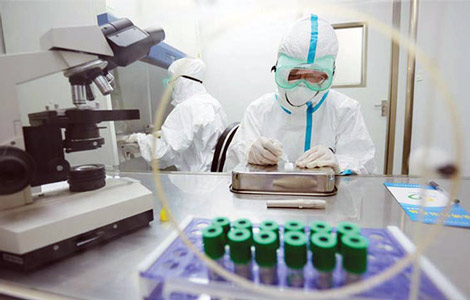
 Experts join fight against Ebola
Experts join fight against Ebola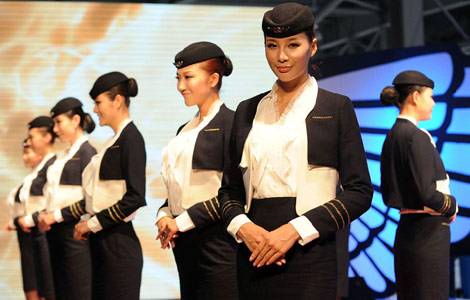
 US airlines hiring more Chinese-speaking cabin crews
US airlines hiring more Chinese-speaking cabin crews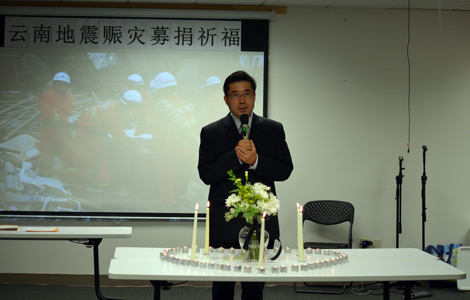
 Funds raised for Yunnan quake
Funds raised for Yunnan quake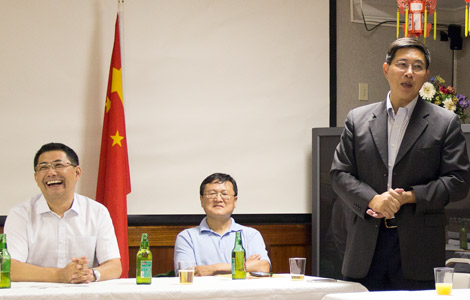
 Ex-consul comes back to Houston seeking talents
Ex-consul comes back to Houston seeking talents
Most Viewed
Editor's Picks

|

|

|

|

|

|
Today's Top News
Deng TV series lifts the lid on key years
Futures consultants see future in China
Menlo Park VC invests in China's medical tourism
Many Chinese economic fugitives still at large in US
Chinese medical supplies arrive in Ebola-affected Sierra Leone
China's Huawei shows interest in LatAm
Kerry: Formation of Iraqi govt critical for stability
Shooting leaves 2 dead, 5 injured in New Orleans
US Weekly

|

|
